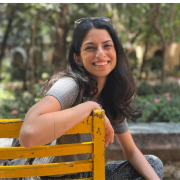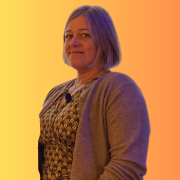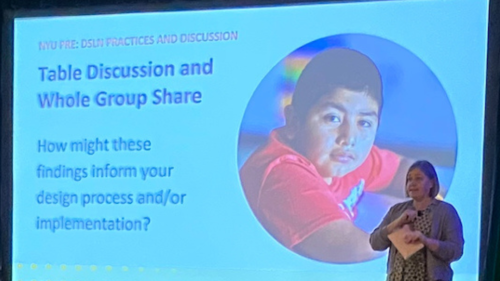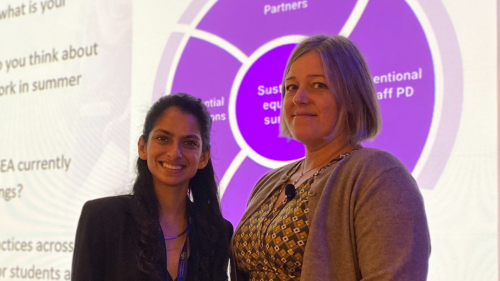The National Summer Learning Association recently hosted its 2024 Summer Learning Summit, bringing together thousands of educators, policymakers, community-based organizations, non-profits, foundations, content providers and more for 3 days in Washington, DC. This unique Summit is the only national conference focused on improving summer learning for students, families and communities.
Researchers from the Center for Policy, Research, and Evaluation (PRE) at NYU Metro Center are renowned throughout the country for conducting applied research and evaluation studies focused on promoting positive educational outcomes for youth and understanding the influence of both schools and communities on those outcomes. One of the aims of NYU Metro Center’s PRE team is to use lift up practices and policies that further educational equity and address long-standing disparities faced by marginalized communities.
PRE research team members, Principal Research Associate, Sara McAlister, and Research Project Manager, Rhea Almeida, presented findings from the District Summer Learning Network (DSLN) Research Study on how school districts can “Build a systems-level equity approach in summer learning.” The two study investigators expressed the vital importance of changes being implemented to these summer school programs.

“Summer learning programs can be instrumental in bridging opportunity gaps and increasing access to fun, enriching experiences particularly for minoritized students. We hope to continue amplifying strategies and practices that DSLN districts are using to make their programs as equitable and accessible as possible,”
noted PRE Research Manager, Rhea Almeida. While Sarah McAlister, Research Associate from the Center for Policy, Research and Evaluation asserted that,

“for summer learning programs to reach their potential to accelerate and enrich learning, they can’t be treated as an add-on or afterthought to the regular school year. The practices we highlight ensure that equitable summer learning becomes an integral part of how districts serve students and families."

DSLN has helped more than 100 school districts and six states design, implement, and sustain high-quality, evidence-based summer learning programs that prepare students for academic success and support their well-being. Funded by The Wallace Foundation, DSLN is designed and led by FHI 360. NYU PRE is the research partner on DSLN, documenting how districts and states plan, implement and sustain high-quality summer learning programs that center equity, support the whole child, and build strong partnerships.
NYU Metro Center’s PRE research team presented practices from a small group of DSLN districts deeply committed to sustaining equity practices. They emphasized a systems-level approach to building and sustaining equitable summer learning, that involves leaders and stakeholders at every rung of a districts' structure.
PRE’s presentation showcased four key components of a systems-level equity approach:
- Influential internal champions that can set a shared vision and insist on an equity lens for decision-making.
- Strong community partners that represent the diverse student identities being served in the summer.
- Equity-focused professional learning that equips educators to embed equity in their planning and practice,
- Inclusive planning tables that bring stakeholders closest to students into summer planning to ensure their needs are reflected in plans.

They also provided concrete examples of district practices for each component. For example, they discussed how the summer learning lead of a small Midwestern suburb said their district- and school-level administrators “rumble over equity frequently,” ensuring it isn’t just written on a piece of paper, but is an active and ongoing conversation. Engaging influential leaders in these conversations led to specific equity practices such as identifying ELL, African American boys, migrant and refugee students as priority groups in the summer, and choosing partners like the local African Resource Center and Hispanic Resource Center for programming relevant to students’ cultures. This example showcased the power of influential champions and the role of partners in equity work.
The PRE team concluded with an illustrative quote from a large Southern district’s summer lead who describes equity work as, “like a car that's misaligned, if you stop holding it steady, it will drift back in another direction, even without malice. No one is actively opposed to it, but it just drifts back in that direction.”
After the presentation, districts engaged in thoughtful table discussions about their strategies to address the unmet needs of students, and how they can strengthen their practices across the system. This was followed by a large group share-out, where district leaders resonated with the need for systems-level champions to drive and hold equity work, and pointed to the importance of a culturally responsive curriculum.

